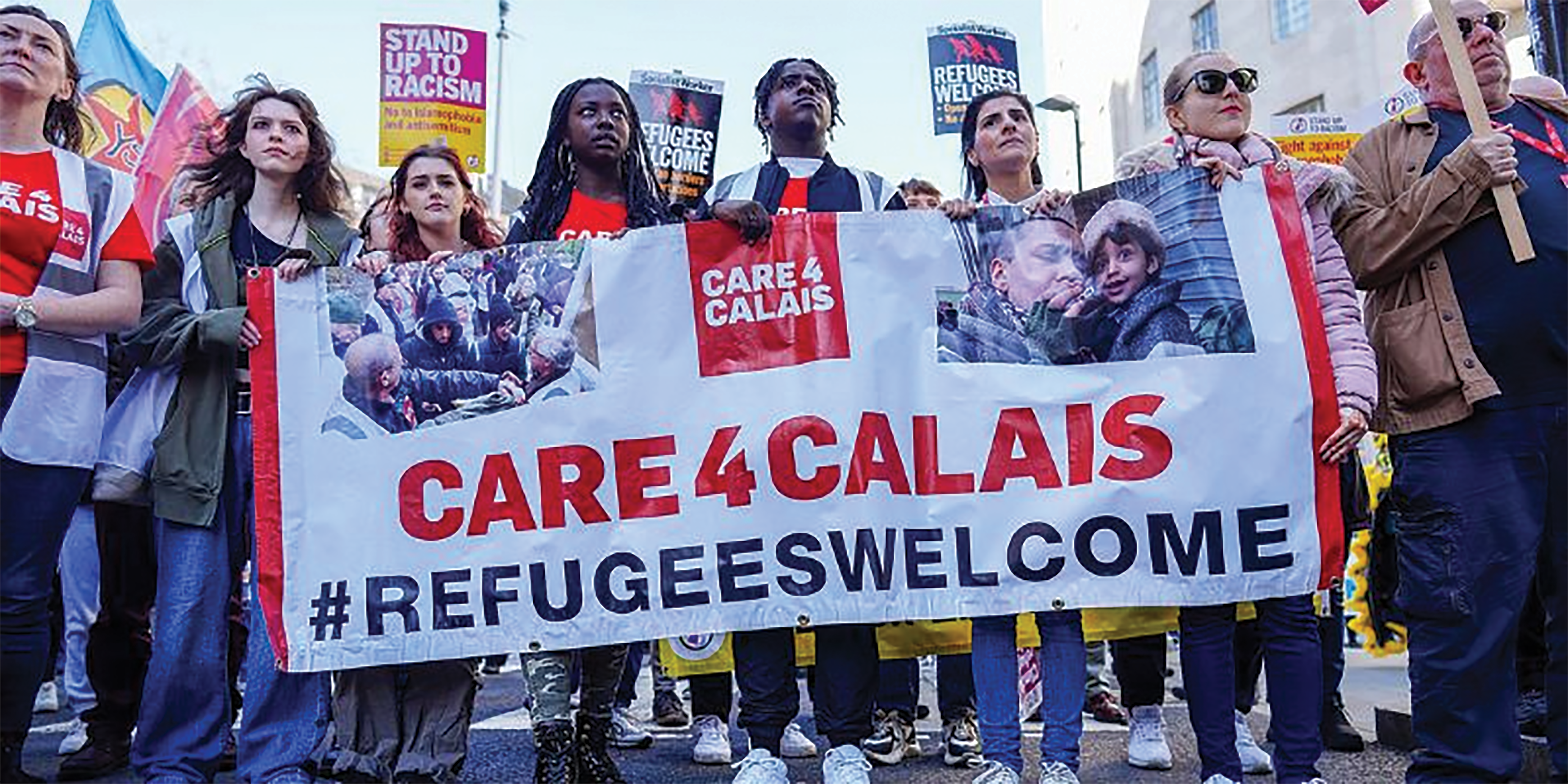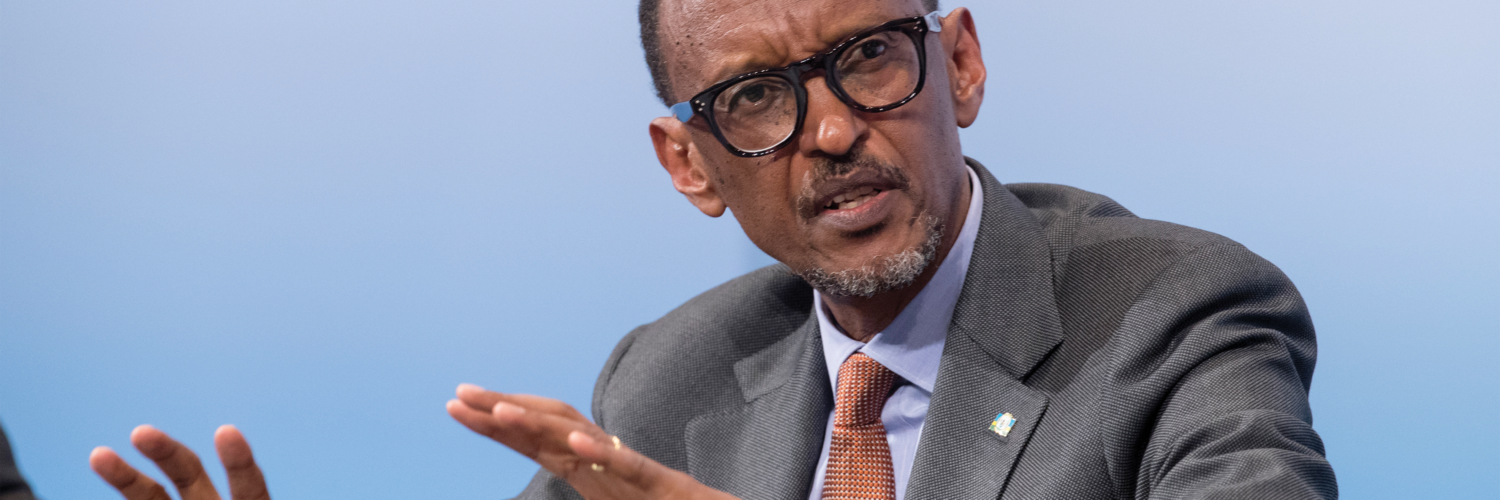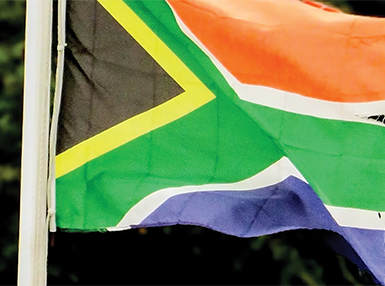IMPASSE: UK’s policy to deport asylum seekers to Rwanda has been ruled unlawful by court, which argued they faced persecution if returned home….
By Hannah Cross
A major contradiction of free market capitalism is that, for all its ‘imperfections’, it is supposed to end feudalism, creating free circulation in the labour market and bringing political equality to people ruled by an impartial market.
Yet as it accelerates, these market relations can only hold with authoritarian state intervention, repression, and more imposition of feudal relations. Hence a government that has no interest in controlling the destructive profiteering of the private sector, while growing numbers of people lose access to the necessities of life, does all it can to elevate aristocratic rule, stimulate divisive nationalism, and intervene heavily in the movement of people.
The force of the UK governments fascist-inspired efforts to remove political freedoms has advanced with the force of economic chaos facing the majority. Recent developments suggest some of its efforts are failing, but it will fight on.
The House of Lords, including Conservative peers (from the governing party), brought wrecking amendments to the illegal Migration Bill last week. These would require the government to abide by international human rights conventions, allow unaccompanied children to claim asylum, and stop potential victims of human trafficking from being detained or deported before their cases are heard. Further amendments passed on Monday concerning deportation, detention and processing limits for LGBTQ+ migrants, pregnant women and children, and asylum seekers in general.
The government’s policy to deport asylum seekers to Rwanda has been ruled unlawful by the Court of Appeal. After the High Court had ruled that Rwanda was a ‘safe third country’, this case brought by asylum seekers and Action Aid reversed the decision, finding that asylum seekers risked being returned to their home country and could face inhumane treatment and persecution.
The Home Office itself, with the remit of enforcing the policy, has found it unworkable. This week, it reported that the plan would cost about R4 million per person, significantly higher than the cost of housing asylum seekers in the UK. Lawyers at the Court of Appeal argued that the High Court showed ‘excessive deference’ to the Home Office leadership’s assurances that deportees would be protected. The material provided by the Rwandan authorities was lacking in credibility, with ‘blanket denials and clear contradictions.’ It is barely credible that the successive Home Secretaries leading the Rwanda policy are assured of the safety of the policy.
Last year, the Public and Commercial Services Union, which represents Home Office members, joined asylum seekers, Care4Calais and Detention Action in a case which prevented the deportation of eight asylum seekers and showed that Rwanda was an unsafe country, with the possibility of forced conscription for those sent there after fleeing war-torn countries. Home Secretary Priti Patel was found to have ignored the Foreign Office warning of human rights abuses. Paul Kagame’s Rwanda, with the complicity of Western media and international financial institutions, has been presented as a successful developmental state, working with donors to achieve high development indicators.
From 2015 onwards, researchers at Review of African Political Economy (ROAPE) challenged this narrative and the claims of a ‘Green Revolution’, in which neoliberal agrarian modernisation had brought widespread benefits to the country’s rural populations. Some of the researchers had to publish anonymously for fear of reprisal by the state in Kigali, while the veracity of their data was followed up by a Financial Times investigation into the country’s poverty statistics.
As for the politics of the regime, its bureaucratic state apparatus and spatial planning lends itself to the outsourcing of detention centres, while state violence has included the killing of refugees. An investigation last year found that a 13th Congolese refugee had been shot dead at the hands of state authorities, months after 12 protestors from the Kibiza camp were killed in 2018.
Human and economic cost
Suella Braverman, who praises the opportunities offered for asylum seekers entering Rwanda, is backed by Prime Minister Rishi Sunak as she fights back for her flagship policy. The fightback is built on further unsubstantiated claims and deceptions. The idea that the human and economic cost of the Rwanda plan is justified because it would deter channel crossings might have a twisted logic if France were a safe country for refugees and onward migration were a choice.
However, it is not: if asylum seekers are coming from countries outside Europe and are racially identified, they find themselves destitute and suffer physical violence, humiliation and the destruction of shelter, food, and water supplies by the French authorities. Brexit opened up the possibility of asylum in the UK because the Dublin convention, which allows governments to return people to the European countries they have passed through, could no longer be enacted; thus, English-speaking refugees and those with potential connections to the country might have some chance here of finding safety, building a tolerable life and supporting their families, no matter how risky and hostile their reception.
This forced condition of migration exposes the emptiness of Braverman’s repeated suggestions that all the world would come to the UK if it could, so harsh penalties are necessary. Her argument shows an arrogance that ignores the ways that people are uprooted from their lives in specific circumstances, are torn from their families and struggle to find safety anywhere. Britain has a role in many of these upheavals, including in Sudan’s counter-revolution. Moreover, it has contributed significantly to Fortress Europe and its militarised borders, as well as to its failure to find a workable asylum policy, and this has created the conditions for irregular migration.
Lies and more lies
Because most migration is not by choice, the closure of legal and safe routes does not deter people or fundamentally reduce numbers. It makes the journey unsafe and kills people. This is borne out by the terror that the Rwanda policy announcement brought to refugees in Calais in early June 2022, yet the channel crossings increased in the summer and have continued in their thousands this year, with Afghans becoming the largest nationality.
Nor are there any grounds to the repeated claims that the Rwanda policy would be ‘the will of the people’: this government and its new programme is not even elected by the people. And, one further lie, that the Labour Party – the country’s main opposition party – has been particularly complicit in, is that the fight against ‘illegal immigration’ is a fight against the traffickers and smugglers, when in reality it is migrants and their dependants who suffer the brunt of it, and smugglers are often in a similar situation.
Considering the layers of deception on which the policy flounders, it is remarkable that an opposition party led by a barrister has done little more than mock the failure of the policy to reject the people arriving in boats. If government’s appeal for the Rwanda policy succeeds, the main victory for the Tories will be that they are no longer restrained by international law or a functioning democratic state in its narrowest sense, and this will embolden their suppression of any threats to their survival, domestic and international. The decisions of the Court of Appeal and House of Lords, and Home Office scrutiny, might give the sense of having the ‘good governance’ and democracy that British policymakers claim to offer the Global South.
However, the terrible conditions of indefinite detention that asylum seekers face and the failure to protect children, the ‘unfree’ labour that British production relies on, and the prosecution of dissenters, all coexist with military and economic imperialism in parts of Africa, the Middle East and elsewhere. The Rwanda policy would be a further step to an illiberalism that is already deeply embedded in the state and most evident in its external relations.
We can find surprising alliances in its resistance and must retain the internationalist class perspective in the first instance.
- The article was sourced from The Elephant, a Kenyan-based news outfit. Hanna h Cross is a senior lecturer in International Relations at the University of Westminster, and the Chair of ROAPE’s Editorial Working Group, a peer-reviewed academic journal that covers issues relating to the African political economy

Comment
ASPARTAME – THE TRUTH IN THE MAZE
The world may be abuzz following the World Health Organization’s contentious findings on aspartame, the artificial sweetener found in thousands of sugar-free products like diet cold drinks, chewing gums, yoghurts, energy drinks and so on. Not needlessly, of course, given the significance of the findings and their possible far-reaching implications for both consumers and business. For the unversed, yesterday the WHO agencies classified aspartame as possibly carcinogenic (cancer-causing) to humans, but qualified their announcement with a caveat that further research was still needed “due to limited evidence”.
The WHO’s International Agency for Research on Cancer, explained that this finding did not however mean that aspartame definitively causes cancer. A separate group, the Joint Expert Committee on Food Additives (JECFA), said there was no convincing evidence of a link between aspartame and cancer in humans, and that people could still safely consume the sweetener in moderate amounts. For clarity, the WHO said it was not advising companies to withdraw products that contain aspartame or urging people to stop consuming it altogether. Dr. Francesco Branca, director of the WHO’s Department of Nutrition and Food Safety, said: “We’re just advising for a bit of moderation,” he said.
It said aspartame was safe for consumers to consume within a daily limit of 40 milligrams per kilogram of a person’s body weight. For example, an adult weighing 70 kilograms or 154 pounds would have to drink more than nine to 14 cans of aspartame-containing soda daily to exceed the limit and potentially face health risks.
Meanwhile, the sugar substitute is widely used daily in diet soft drinks, energy drinks, as well as in gelatin, ice cream, dairy products such as yogurt, breakfast cereal, toothpaste and medications such as cough drops and chewable vitamins. Disagreeing with the findings, the United States’ Food and Drug Administration (FDA) said conclusions about aspartame being “possibly carcinogenic to humans” did not mean that it was “actually linked to cancer”.
Likewise unstirred by the findings, the powerful American Beverage Association, representing multinationals with products in more than 90 countries, cited the WHO’s own standpoint that aspartame was safe. To which, the association’s Kevin Keane said: “This strong conclusion reinforces the position of the FDA. and food safety agencies from more than 90 countries.”
Well, where does the whole rigmarole leave consumers, who may be none the wiser – perhaps a tad more confused – in the end, amid the twists and turns around this issue. No doubt made all the more intriguing by the WHO’s duelling and mealy-mouthed announcements – much akin one taking one forward and one step back, ostensibly in the name of progress.
Ultimately, the ball is in the consumer’s court – to make their own judgment, depending also on their own health status. One thing’s for sure, though, this topic is a highly contested terrain, requiring. future researchers who dare to step into this lions’ den to be prepared to literally take no prisoners.






























